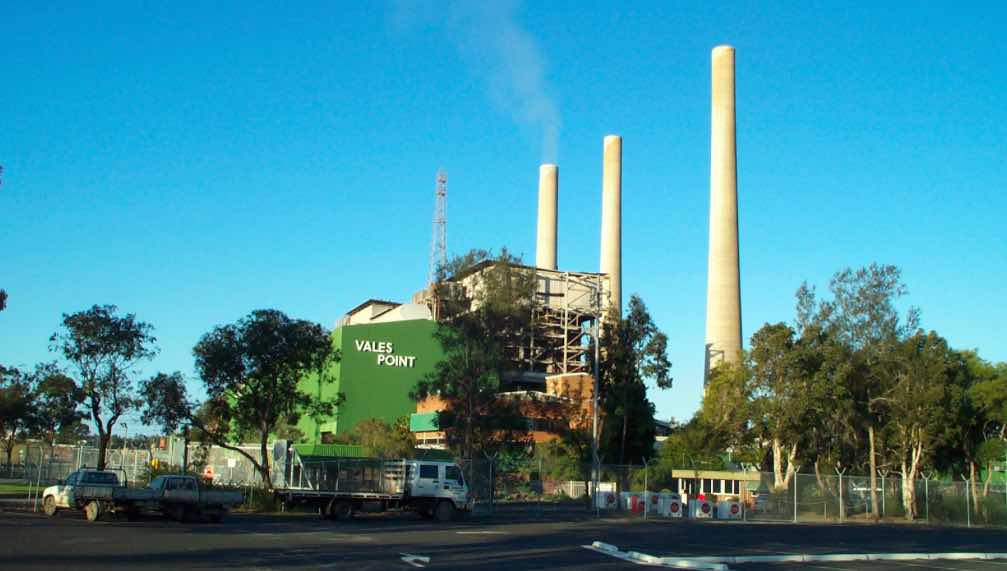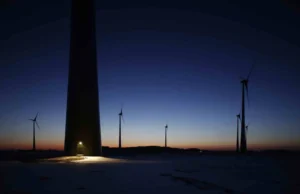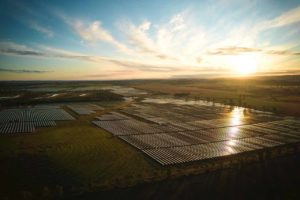The owner of the Vales Point coal generator in New South Wales has signed a long term contract to buy most of the output from the proposed 275MW Darlington solar farm, which will be one of the biggest in the country.
The contract for 150MW of the solar farm’s capacity, which lasts until the expected end of the operating life of Vales Point – was announced by Edify Energy and Delta Electricity in a statement on Tuesday, and hailed by both parties as a significant step towards the inevitable clean energy transition.
“This contract serves as an example of solar working together with coal in NSW and demonstrates the growing place of renewable energy,” the two companies said in a statement.
More specifically, power from the solar farm will be used to support Delta Electricity’s expanding retail portfolio, and it will use the large scale certificates produced from the solar farm to help meet its renewable energy target liability, and to deal with any future emissions compliance.
Delta has captured headlines in recent months because one of its principals, Trevor St Baker, has been a vocal critic of renewable policies and warned against too much wind and solar in the grid, calling for them to be curtailed.
He has also addressed the Coalition’s “Monash Forum” that disputes climate science and argues against the push to renewables.
Vales Point is also a prominent supporter of the Coalition government’s tender for “new dispatchable generation” and is thought to be a favoured candidate, even though its proposal would only be to seek to extend the life of the coal generator.
(On the subject of this, the contract suggests that Vales Point will operate until 2030, although in the recent Integrated System Plan, the anticipated shut-down date is on its 50th anniversary in 2028/29).
“Delta recognises that both dispatchable power and low emission technologies have a role to play in supporting an affordable, reliable and sustainable national electricity market,” Delta Electricity company secretary, Steve Gurney, said in a statement.
“This PPA is a model for how both traditional generation and renewables can work together to ensure reliable supply to customers while providing a significant contribution to state and federal government renewable energy targets.”
It also raises an interesting possibility – that Vales Point is using the project as a means to satisfy its regulatory requirements as it pushes into the retail market for big energy users (such as Tomago Smelter), and also to deflect any criticism that would emerge from the government’s tender. Or may be it just realises that renewables are the future.
Once the solar plant is operating in 2020, Delta will be able to combine the output of the solar and the coal plant to deliver “dispatchable” generation that would be cleaner and cheaper than what it does now. It also means that solar will inevitably displace some of the output from the coal generator.
Edify has a growing portfolio of solar and battery projects in Australia, including the newly complete Gannawarra solar farm in Victoria, with a 24MW/50MWh Tesla battery, plans to begin construction of the Darlington solar farm next year, having recently gained approval and also unveiled plans for a big battery at that site too.
“This PPA is a cornerstone document to facilitate the financing of one of the largest solar farms in the country,” Edify CEO John Cole said in a statement.
“With traditional and new sources of power now working together, it is time to end the climate debate in Australia. A focus on the economic, not just the environmental benefits, that renewable energy brings will accelerate the transition of the energy sector.”
Edify, which is also part of the “Solar Beach” industry hub in Manly that launched a campaign against sitting Warringah MP Tony Abbott this week, hopes to complete the Darlington project, located near Griffith in the south west of the state, in 2020.
It is expected to generate about 685,000MWh of renewable energy a year and considers the addition of a battery will be inevitable. The output not contracted to Delta will be sold on market, or perhaps contracted to another party.
Vales Point is a 1,320MW coal-fired power station that was bought by Delta Electricity for a knock-down price of $1 million, and has since delivered number profits to its owners.
Delta is also exploring the potential of the 230MW Goat Hill pumped hydro storage project in South Australia and is developing a 55MW solar farm adjacent to the existing Vales Point power station.











